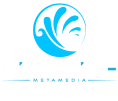The recent Google Helpful Content Update is designed to ensure that users are provided with more useful, high-quality content in search results. This update emphasizes rewarding content created primarily for people, rather than content designed primarily to gain search engine rankings.
It encourages creators to focus on producing content that is informative, valuable, and engaging for their audience. By doing so, it aims to improve the overall quality of content on the web and ensure that users have a better experience when searching for information.
This update is part of Google’s ongoing efforts to enhance the usefulness and relevance of the content it delivers to its users. If you’re a real estate agent looking to expand your audience and establish yourself as an authority in your field, creating helpful and informative content can be a game-changer.
By consistently delivering high-quality content that delves deep into the topic area, you can attract more potential clients, build trust with your audience, and ultimately grow your business. Whether you choose to create blog posts, videos, podcasts, or social media content, the key is to provide value to your audience and position yourself as a knowledgeable and trustworthy resource in the world of real estate.
By doing so, you can set yourself apart from the competition and establish a strong online presence that will help you succeed in the long run. In this post, we highlight some key strategies to help real estate agents create only helpful content for their audience. Keep reading to find out more.
Creating helpful content is crucial for real estate agents aiming to engage their audience effectively. Here’s an in-depth look at the strategies you mentioned, offering a comprehensive guide to implementing each one:
Get to Know Your Audience
To create content that truly connects with your audience, you need to have a deep understanding of who they are, what they care about, and what challenges they face. This is especially important for real estate agents who want to reach their target market effectively.
So, where do you begin?
One of the best ways to get started is by analyzing your current client data. This data can provide valuable insights into the demographics, interests, and pain points of your target audience.
By identifying patterns and trends in your data, you can begin to build a detailed picture of who your audience is and what they need. Another approach is to conduct surveys. Surveys allow you to gather direct feedback from your audience and can be incredibly effective in helping you understand their preferences, concerns, and aspirations.
When designing your survey questions, be sure to keep your target audience in mind and focus on topics that are relevant to them. Finally, don’t underestimate the power of social media. Engaging with your audience on social media platforms like Facebook, Twitter, and Instagram can provide valuable insights into their needs and preferences.
By monitoring conversations and participating in discussions, you can gain a better understanding of the topics that matter most to your audience.
Look at Your Competitors
Keeping a close eye on your competitors’ activities can be immensely helpful in gaining a competitive edge in your industry. One primary benefit of analyzing your competitors is that it can provide you with valuable insights into their content strategy.
By examining the type of content they produce, which topics they cover, and how their audience engages with it, you can identify gaps in their approach that you can fill. This doesn’t mean that you should copy what your competitors are doing, but rather that you should use their strategies as a starting point for developing your own unique approach.
It’s also essential to note what works well for your competitors and consider how you can adopt similar strategies that align with your unique brand voice and audience needs. For example, if your competitor’s blog post format is getting a lot of engagement, you could try a similar format with your own unique content.
Similarly, if your competitor’s social media strategy is effective, you could consider adopting a similar approach while still maintaining your brand’s unique voice and identity. By carefully analyzing your competitors, you can gain a better understanding of your industry and develop a content strategy that will help you stand out from the crowd.
Remember, the key is not to copy what your competitors are doing, but rather to use their strategies as inspiration for developing your own unique approach that aligns with your brand’s values and audience needs.
Keep It Human
Real estate is a very personal, human-centered industry. Your content should reflect this by being relatable and engaging. Avoid overly technical jargon that might alienate readers and instead focus on creating stories that connect on a personal level.
Share success stories, challenges, and insights into the real estate world that highlight your expertise while also showing your human side. This approach builds trust and fosters a stronger connection with your audience.
Don’t Ditch Keyword Research
While it’s important to keep real estate marketing content human and engaging, real estate SEO cannot be ignored. Conducting keyword research helps you understand what your audience is searching for online, allowing you to tailor your content to meet those search queries. Use tools like Google Keyword Planner or SEMrush to find relevant keywords that can guide your content creation, ensuring your articles and posts are discoverable by your target audience on search engines.
Run Regular Content Audits
Performing content audits is a crucial aspect of maintaining a website with high-quality content. It involves a detailed review of all the content present on your website, including blogs, articles, videos, infographics, and other relevant resources. The primary objective of a content audit is to assess the effectiveness of the content and ensure that it is still relevant, up-to-date, and aligned with your SEO strategy. Conducting regular content audits helps identify areas where your website content may require improvement.
Content audits helps identify content that can be updated, repurposed, or removed, ensuring your website remains a valuable resource for your audience. Auditing content ensures your website’s content strategy stays focused, in line with your business goals, and caters to the needs of your target audience.
A detailed content audit includes a comprehensive analysis of the performance of your website’s content, including factors such as page views, bounce rates, time spent on the page, and engagement metrics. By using these metrics, you can determine the effectiveness of the content and identify areas that require improvement.
Be Actionable: Include Examples and Instructions to Help Readers
To create real estate marketing content that truly resonates with your audience, it’s crucial to not only inform them but also empower them to take action. One way to do this is by providing practical advice, step-by-step guides, examples, and how-to instructions. By doing so, you add value and engagement to your content.
For instance, let’s say you’re writing an article on the benefits of a home inspection. Instead of just listing these benefits, you could provide a detailed guide on how to prepare for one. This could include tips on selecting the right inspector, scheduling the inspection, and what to expect during the inspection itself.
You could also provide advice on how to interpret the results of the inspection, such as what to look for in the report and how to address any issues that are uncovered. By offering this level of detail and guidance, you can help your audience feel more confident and knowledgeable about the topic, which in turn can lead to greater engagement and loyalty over time.
Use Reliable and Up-to-Date Information
The real estate industry is a rapidly changing landscape, impacted by an array of factors such as economic trends, government policies, and social dynamics. As such, any information shared must be accurate, reliable, and up-to-date with the latest industry trends and legal requirements.
In order to maintain your reputation as a trustworthy expert, it’s essential to cite reputable sources and stay informed of industry news. Regularly updating your content to reflect the latest developments not only ensures its relevance and usefulness but also helps establish your credibility within the industry.
Therefore, it’s crucial to continuously educate yourself on the latest trends and regulations to provide your audience with the most reliable and informed information.
For real estate agents aiming to differentiate themselves in a crowded market, the creation of helpful, audience-centric content is not just a strategy but a necessity. Understanding your audience, analyzing competitors, and keeping your content human and relatable are pivotal steps in crafting content that resonates and engages.
HighTide Metamedia emerges as a vital partner in this journey, providing real estate professionals with the expertise and tools needed to deliver content that not only captivates but also converts. By leveraging HighTide Metamedia’s services, you can ensure your content strategy is aligned with the latest industry insights and trends, positioning them for success in attracting and retaining clients. Contact us today for helpful real estate marketing content.


0 Comments